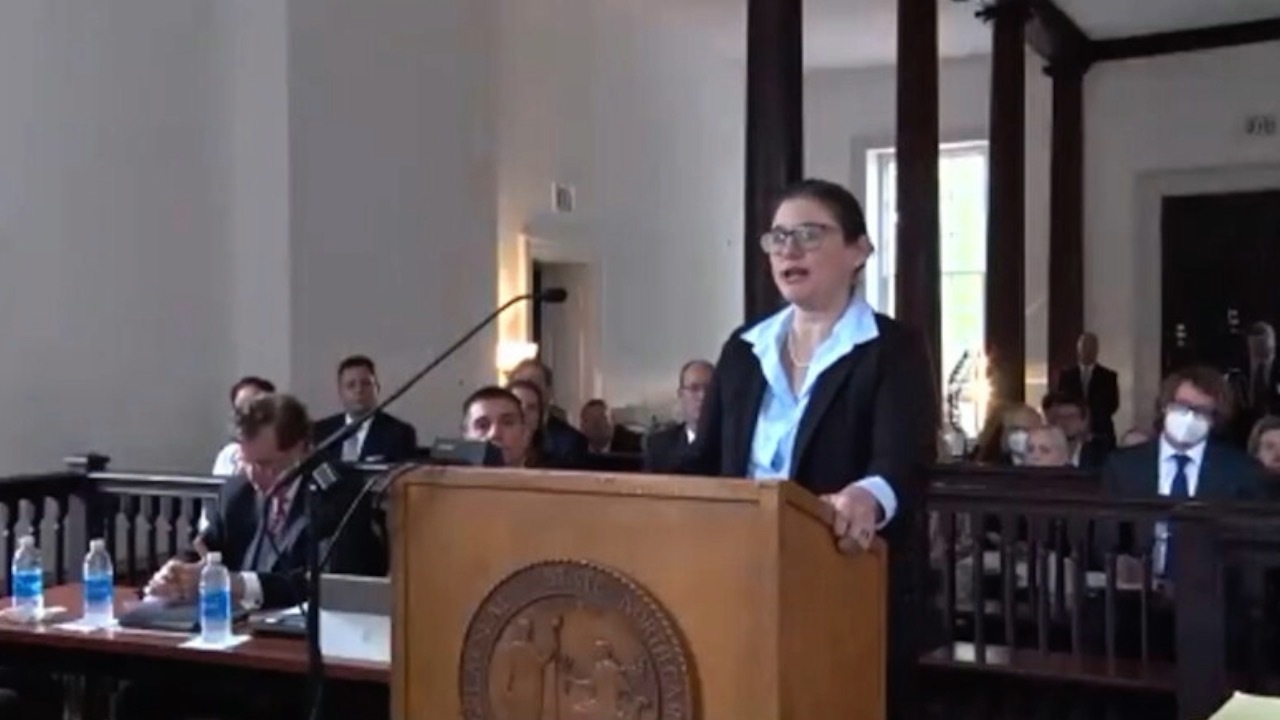The North Carolina Supreme Court met in the Historic 1767 Chowan Count Courthouse in Edenton on October 3 and 4.
The beauty of the setting belied the ugly politics behind two of the cases the court heard on those days.
The court had decided on a 4-3 party-line vote on July 28 to truncate the normal judicial process in Harper v. Hall, a redistricting case. That allowed the high court to hear the case in 2022 instead of early 2023, as it would have under the normal process.
That same 4-3 majority decided to up the audacity in Holmes v. Moore, a voter ID case. Their September 9 order bypassed the normal judicial process entirely by ordering the case be brought directly to the high court without going through the North Carolina Court of Appeals.
Why would the court’s majority decide to skip over usual judicial standards to hear these cases before they had gone through the normal process? In both orders, Justice Robin Hudson wrote they did so because of the “need to reach a final resolution on the merits at the earliest possible opportunity.”
That is simply not true.

As Justice Tamara Barringer pointed out in her dissent to the July 28 order, hearing the cases this year will have “no impact on the 2022 elections.” Having the cases heard in the first half of 2023, as they would be under a regular schedule, would still produce decisions in plenty of time for the 2024 elections.
Hearing a case on election procedures after absentee voting has already started could cause voter confusion. When voters find out that the state’s Supreme Court heard a case on voter ID just one month before election day, it is natural that they wonder if they will need an ID to vote this year. When they discover that the court has heard a case on the legality of the legislative districts on their ballots, they could be forgiven for thinking that the case will impact this election.
The decision to rush the court’s judgments also makes no sense legally. Speeding these cases solves no legal issues that could not be solved through the normal process, and nobody would have suffered damage if the court decided the cases in 2023. As Justice Barringer succinctly stated, the court majority’s orders to bypass standard judicial procedures in the two election cases “cannot be explained by reason, practice, or precedent.”
So what is the real motivation behind the court majority bypassing normal judicial standards to hear those cases this fall? It is politics, raw and banal.
Jason Snead, executive director of Honest Elections Project Action, touched on the problem in a September 20 editorial. He wrote, “left-wing special interests are looking for every opportunity to gut election safeguards” and are using “rogue courts a[s] one of their favorite vehicles.” The North Carolina Supreme Court has become one of those progressive “rogue courts.”
But it looks like the progressive party is almost over. Voters have noticed what the court has been up to and do not like it.
A recent John Locke Foundation/Cygnal poll found the Republican Richard Dietz leading Democrat Lucy Inman 44.5 percent to 40.5 percent. Democratic incumbent Sam J. Ervin is in even worse shape. He trails Republican challenger Trey Allen by 38.9 percent to Allen’s 46.0 percent. Republican wins in either race would flip control of the court.
That means the voter ID and redistricting cases would be decided by a North Carolina Supreme Court with a Republican majority if the court heard them on the regular schedule.
So the only reason the current majority wants to discard standard judicial procedures is so they can use the power they currently have before the voters of North Carolina take it away from them. While that kind of exercise of raw power is expected in the more traditionally political legislative and executive branches, it is unexpected and unfortunate in the judiciary and undermines the legitimacy of the court.
It may take years to undo the damage this temporary court majority is causing on its way out of power.
Andy Jackson is the Director of the Civitas Center for Public Integrity at the John Locke Foundation.